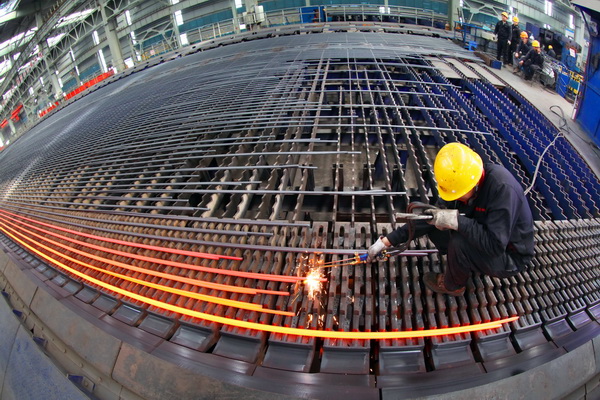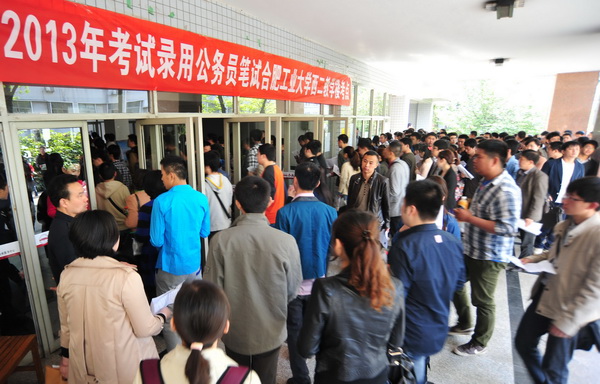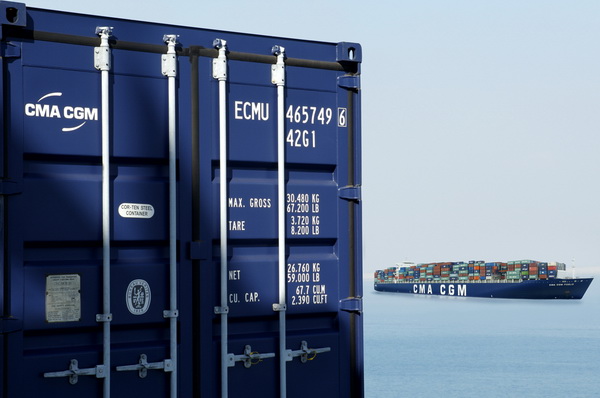

Highlights from the EO print edition, No. 621, May 27, 2013

Industry Urges Government to Stimulate Economy By Cutting Taxes
News, page 1
~ Although the general economic outlook is starting to appear a little bleak, various industry associations are still urging the central government to forgo any plans to launch a new large-scale stimulus plan. Instead, they're calling for tax breaks and encouragement in ridding industry of outdated production capacity.
~ Last week an official from the National Development and Reform Commission (NDRC) told the EO that that industry should stop holding out for a new round of stimulus spending and should instead grab the opportunity to get rid of outmoded production capacity and upgrade their industrial structure.
~ An official from the Ministry of Industry and Information Technology (MIIT) gave the EO an even clearer signal, telling our reporter "If the real economy really does underperform, than of course some appropriate policies will be introduced. However, at the moment, it hasn't reached the stage where we must implement stimulus policies, at the least we need to keep monitoring the situation for a while."
~ Recent official data has given an indication of the problems facing industry. The Producer Price Index (PPI), a measure of inflation at the wholesale level, declined by 2.6 percent in April, the 14th consecutive month that the indicator has seen negative growth. The pace at which investment in industry is growing has also slowed, dropping from an annual rate of 26.9 percent in 2011 to 17.4 percent for the first quarter of this year. Over the first four months of the year, industrial value-added growth has also been trending below the target annual growth rate for the year. A source with a government ministry also told the EO that 20 percent of companies over a certain size made losses in the first quarter of 2013.
~ However, industry associations representing the interests of the textile, iron & steel and petrochemical industry have all said that the government is right in not introducing a new round of stimulus. These industries are instead calling for a reduction in tax and other supportive policies.
~ Gao Yong (高勇), the deputy director of the China National Textile And Apparel Council, told the EO that "we don't think that the government should launch any stimulus policies, the difficulties that we're encountering at the moment are market problems, we should let the market solve them."
~ Gao Yong did however call for government assistance in encouraging eliminating out-of-date production capacity, addressing the price differential between the government mandated domestic cotton prices and imported cotton and also in reducing taxes.
~ China's Iron and Steel Association (CISA), a body that represents many of the country's big steel makers, is also lobbying the government to reduce the tax burden on industry. Last year, more than 80 of the country's steel companies made close to 1.6 billion yuan in profits, over a 90 percent drop on the previous year. However, for the same year, the same companies paid 74.1 billion yuan in tax, only a 2 percent fall on the amount they paid in 2011.
~ An unnamed representative from CISA told the EO that "this is seriously uncoordinated. Although the government says it will lower taxes, this is not what companies are experiencing. This is further eroding the the already limited space that companies have to make profits."
~ CISA is calling on the government to lower the value-added tax (VAT) from 17 to 13 percent and other taxes from 25 to 20 percent. The steel association also complained about the cost of financing.
~ Zhu Fang (祝昉), Deputy Director of the Information and Marketing Department of the China Petroleum and Chemical Industry Association, told the EO that "The government should not unveil new stimulus policies now, but should take advantage of the exit of some companies from the market to eliminate out-of-date capacity and carry out industrial upgrading. Zhu Fang also noted that the industry would like to see taxes lowered, but acknoweledged that the probability of this happening was slim.
~ Despite calls from industry for a lowering of taxes, an official from the NDRC refuted the claim that industry woes are caused by the central government placing too great a tax burden on companies, instead he told the EO that "the fundamental problem is excess capacity, excess capacity has led to lower profits in these industries, which is a problem with the industries themselves."
Original article: [Chinese]

Reform of Civil Servants Work Contracts Could go National
News, page 2
~ In November, 2007, the southern city of Shenzhen announced that it would hire 41 civil servants according to a new contract system, piloting a new reform that shook up the idea that a public service job was a job for life. After carrying out pilot project for two years, Shenzhen began to sign contracts with all new civil servants according to the system. Now there are 3,000 civil servants on contracts in Shenzhen and the city plans to hire another 500 civil servants this year.
~ Shanghai followed Shenzhen's lead in 2008, though its reforms involved less positions than in Shenzhen. In 2012 the provinces of Jiangxi, Henan, Fujian, Liaoning and Guangxi also introduced similar reforms.
~ Before the end of this year, the provinces of Jiangsu, Sichuan, Shanxi and Shandong will all launch variants of the new system. The reform may expand nationwide next year.
Original article: [Chinese]
The Side-effects of Healthcare Reform
News, page 4
~ At a work conference earlier this year, the Ministry of Health (now part of the National Health and Family Planning Commission) signaled its intention to carry out further healthcare reforms.
~ "The healthcare reform emphasizes the welfare of public hospitals," said Mr. Li, the director of a county hospital in West China. "But on the other hand, it neglects the economic factors behind their operations. So many problems remain unsolved and the tension between patients and doctors is still serious."
~ One reform that's gained traction in recent years is to remove markups on medicine, which critics say have created a perverse incentive for doctors to needlessly prescribe expensive drugs. However, Mr. Li says this has led to the reduction in doctors' incomes, and thus, their enthusiasm. Last year, Li found that there was no obvious increase in the number of their patients, but the doctors were tired and their attitudes were bad.
~ Li says that last year, his hospital received 2 million yuan in government subsidies that came with new reforms, but the income they lost from marked-up medicine was about 20 million yuan. The gap was closed with service fees to patients.
~ Healthcare reform has also aimed to re-allocate resources and referring patients to certain hospitals based on their conditions in an effort to prevent over-crowding at top-quality hospitals. However, Mr. Li says this still leaves a large gap between the supply of medical resources and the demand. He says the market should be the basis of healthcare reform.
~ Li has combatted these problems at his hospital with his own incentives for doctors based on performance evaluations and how many patients they see in a day. The hospital has also increased the number of beds and patients it accepts while decreasing the average length of stay. The doctors have to work longer hours under this system, but their salaries have increased significantly.
Original article: [Chinese]

Shipping Giants Complicate Market
News, page 4
~ On May 20, Maersk Line, the largest container ship operator in the world, announced that effective July 1, it would raise the price for shipping on each 20-foot container to $750 on several Asia-Europe routes.
~ This came a week after the German shipping company Hapag-Lloyd also announced its 20-foot container shipments on similar routes would increase to $1000 on Jul 1. It also said a further $500 per container fee would be added during the busy season from Aug 1 to Sept 30.
~ Price increases in the shipping industry are nothing new. In the past, when the leading carriers have raised their rates, the small and medium-sized shipping companies have followed suit to form a kind of cartel. However, this time pessimism in the shipping market is casting doubt over the Maersk-led price increase. Smaller companies are holding their ground, or even lowering prices.
~ In March and April prices on these routes fell by over 40 percent. The break-even cost for containers on these routes is $1000-1200, but the recent price has been around $730, meaning most shipping companies are losing money.
~ "The supply and demand situation hasn't changed much," said Chen Ge (陈戈), an expert in the shipping industry. "The falling prices can only mean one thing: the present cartel-like union is no longer very closely united."
~ Chen worries that many of the larger companies continue to buy new ships in spite of falling demand. They're doing so because ship prices are at historic lows and the new technology can help increase efficiency.
~ Zhang Shouguo (张守国), deputy chairman of China Ship-owners Association, opposes these purchases, labeling them speculation. "The shipping capacity is now 30 percent higher than demand in the market," he said. "Investors buying new vessels won't only cause losses for themselves, but will also worsen the situation of the entire shipping market."
Original article: [Chinese]
Bitter Days for Chinese Traditional Medicine Companies
Corporation, page 27
~ Drug companies involved in the manufacture of Traditional Chinese Medicine (TCM) are being squeezed as rising raw material costs lift production costs, but government efforts to put a cap on the price of medicines have restricted their ability to lift retail prices.
~ In 2009 you could by a kilogram of industrial grade caterpillar fungus (虫草) for 8000 yuan, but the price has averaged close to 40,000 yuan a kilo over the first 5 months of this year. Another herb called Panax pseudoginseng (三七), sold for 95 yuan a kilo in 2009, now it sells for 710 yuan a kilo.
~ The rising cost of some of the herbs used to make TCM is especially hard for those companies that produce medicines that have been added to China's new "essential medicines list" - a list that consists of commonly used medicines that the government has committed to keeping reasonably priced.
~ Many listed drug companies involved in the manufacture of TCM have included a section in their reports to the stock market about the risks posed by the rising price of raw materials.
~ Prices for the herbs and other ingredients that are used to make TCM are being pushed up by companies that produce various health products and drinks that are made from traditional Chinese medicine, but as they're not prescription products, are not bound by the price regulations that apply to other medicines and can therefore charge more for their products.
Original article: [Chinese]

